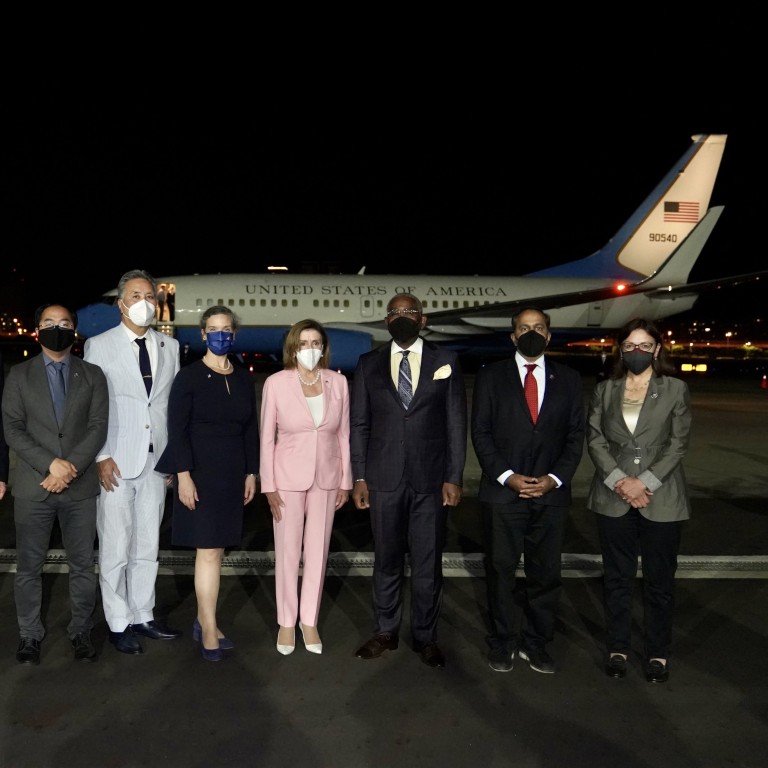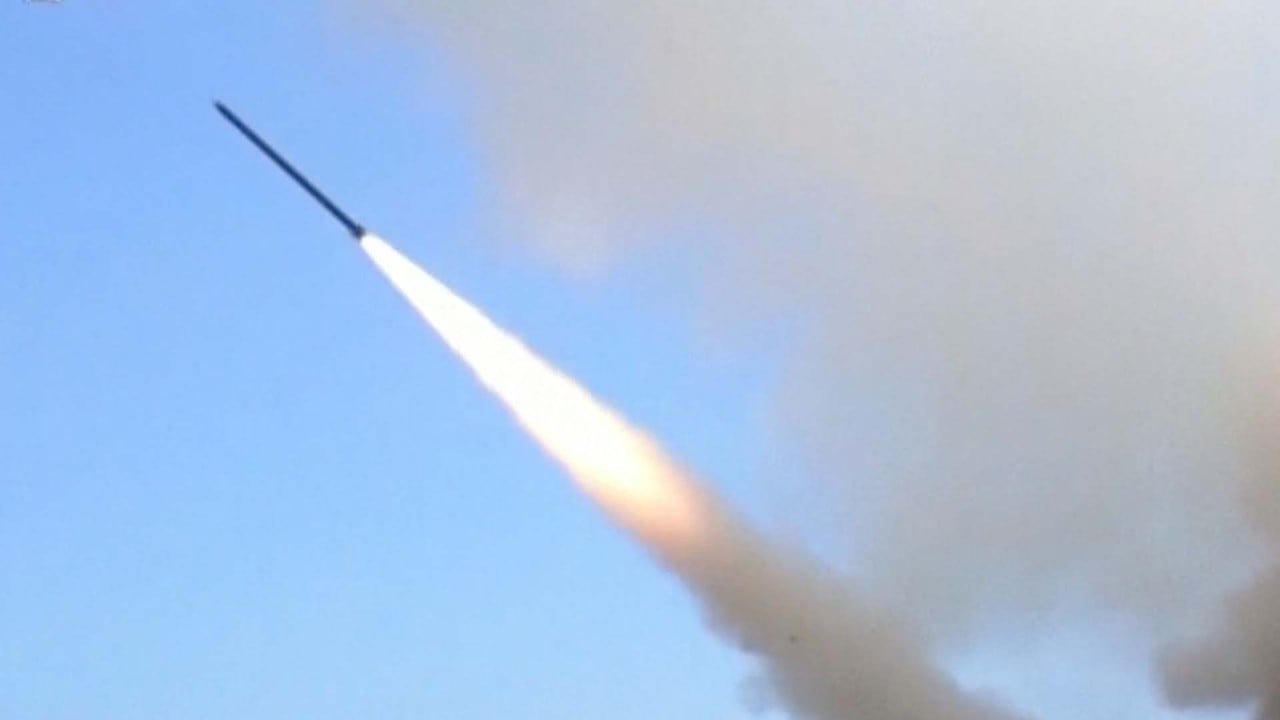
Chinese military forces Pelosi’s plane to make detour, PLA general says
- Beijing’s tracking and surveillance push US House speaker to head east of the Philippines on the way to Taiwan, according to Major General Meng Xiangqing
- Meng says the PLA’s announcement of drills off the coast of the island caused the USS Ronald Reagan carrier strike group to back away
“Our troops deployed in multiple locations became a deterrent to [the plane],” Meng told state broadcaster CCTV, adding that the PLA had staged naval and air forces in areas south of Taiwan, including the Bashi Channel.
But Meng did not elaborate on what measures the PLA took for the “tracking and surveillance”.
Chinese army scrambles fighter jets across Taiwan Strait
Within hours of Pelosi’s departure, the PLA launched an estimated 11 ballistic missiles towards the waters surrounding the island and dispatched over 100 warplanes and more than 10 warships.
Meng also referred to the “first-ever deterrence exercises by the PLA aircraft carrier strike group, with the participation of nuclear submarines”, without specifying when the drills would take place.
The US military has strengthened its aerial intelligence, surveillance and reconnaissance operations near the island.
At least two US RC-135 reconnaissance aircraft, three P-8A maritime patrol and reconnaissance aircraft, one E-3G early warning and control aircraft and one U-2S high-altitude reconnaissance and surveillance aircraft were active close to the drill locations, supported by six KC-135 tankers, according to Beijing-based think tank SCSPI’s open-source aircraft tracking data.
To manage the heightening tensions, the US military has postponed a Minuteman III intercontinental ballistic missile test originally scheduled for this week at Vandenberg Space Force Base in California.
“We do not believe it is in our interest, Taiwan’s or the region’s interest to allow tensions to escalate further,” said National Security Council Coordinator for Strategic Communications John Kirby.
China military operations around Taiwan show intent to change status quo: US
The White House has reportedly urged Senate Democrats not to move forward with legislation that would name Taiwan a “major non-Nato ally”.
The bipartisan bill would also provide US$4.5 billion in security aid to Taiwan and support its participation in international organisations.
The US Senate foreign relations committee has delayed work on the legislation until September, and it could still be rewritten.
“The White House has significant concerns. I have significant concerns,” US Senator Chris Murphy, a Democrat, was quoted by Bloomberg as saying.


